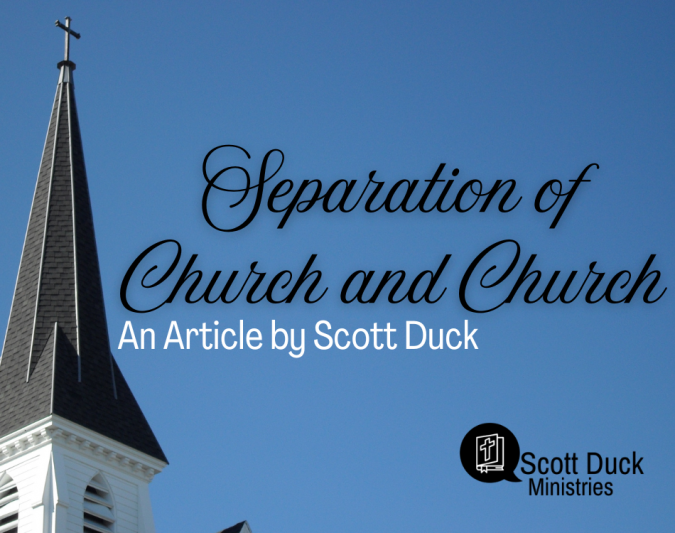
What do you think of when you think of politics? The first thing I tend to think about is all of the drama that we see unfolding every day in Washington. Think about it. I voted for President Trump and I’m glad I did. He won the election and entered office months ago and so he needs to quit campaigning. He often refers to how what he is doing contrasts with what President Biden did or how he is getting us out of a mess that Biden got us into. Most Republican politicians praise most of what he does. Most Democrat politicians deride most of what he does. But here’s the thing. Everything he does is not right, just because he’s President Trump. Everything he does is not wrong, just because he’s President Trump. The two party political system we have promotes that kind of polarized and polarizing thinking. This isn’t just true for the president. Let a governor or someone in congress take a even remotely controversial stand on anything and the members of their party will pile on, extolling the virtues of their position and calling into question the intelligence of anyone who has an apposing prospective. I think that many on both the left and right, especially the far left and far right, are wrong about many things. Often, the best and most practical way of thinking is more toward the middle but it seems that there is ever decreasing real estate in the middle ground territory. This hurts the nation, because it causes disunity and impedes progress.
Progress is impeded in at least two ways. For one thing, they expend so much time and energy and even money, on all the aforementioned drama, that they cannot possibly get nearly as much actual work done as they would if they would just simply focus on the tasks at hand and do their best to forge ahead. What progress is made tends to be in one particular direction concerning any particular thing (economics, healthcare, social issues, etcetera), the direction favored by the party currently in power, until the party in power changes, and then things move in a different direction, undoing much of the progress that was previously made. Between these two factors, drama and changing priorities, things move forward at a snail’s pace or even regress over time.
This is just how things are now and so many of us don’t think much of it. However, we were not meant to have multiple political parties. The founders of our nation absolutely did not want us to have parties. They foresaw the problems inherent in a party system and both discouraged it and did what they could to actively prevent it. Now, we have a president and vice president, from one party, run on one ticket. Originally, whoever got the most votes became president and whoever got the second most became vice president. If they had differences in political ideology, they just had to work through them and forge ahead. It would be much better if everyone did that now, forget the parties, work through the differences, and forge ahead. That isn’t likely to happen any time soon but, if one thinks about it much at all, it’s pretty clear to see that such an approach would be much better for the country.
I have been trying to illustrate a point but this is not a political post. Here is the point I’m trying to make. I believe that there are similarities within the Christian church. Just as our nation was not meant to have multiple political parties, the church was not meant to have multiple denominations. Denominations and other divisions within the Christian church impede progress in doing the work of God’s Kingdom in much the same way that the political parties impede progress of running the Nation.
In general, we don’t see the denominations slugging it out, as the political parties do. However, there are big similarities. Much of the problem with the political parties arises from the assumption of many within a party that all of their party’s ideology is correct, simply because it is the ideology of the party, without the individual really independently thinking it through. We see something very similar in the Christian church. Many people within a given denomination assume that most or all of their denomination’s doctrine is correct, without really independently thinking and praying and studying it through, simply because it is the doctrine of their denomination and it is what they have been taught for years, if not their whole life. That is a problem, though it may be harder to see than the parallel problem within the political party system.
Acts 17:11 tells us that those being taught by Paul, at Berea, searched the Scriptures daily, to see if the things that Paul was teaching them were so. The Scripture commends them for this, saying that this is “fair minded”.
In a talk he gave, I once heard author and pastor Francis Chan, while holding up his Bible, say “We are taught things that you would never get just from studying this book alone”, or words very similar to that, and he was absolutely right. All Christian denominations have doctrine that they say is based on the Bible. Many nondenominational churches basically say that they don’t worry about denominational doctrine and just rely on the Bible. I’m sure that they are sincere. However, it is easy to take Scripture out of Scriptural or historical context and, without meaning to, take meaning from it that was not intended by God, and then base doctrine on that. It is also easy to let doctrinal elements that are not Scripturally based at all creep in over time. You would not know these things, if you do not study the Scriptures for yourself, in order to discern the truth for yourself. Many well meaning Christians, including pastors, fall into this trap and thus believe and perpetuate false doctrine.
Don’t get me wrong. I am not saying that everybody needs to go to seminary and spend hours every day studying the Bible. I am not saying that you need to fact check every thing that your preacher or Sunday school teacher says. I am saying that I encourage you to do something that gets you studying the Word (devotionals, Christian books, audio podcast, videos, etcetera), if not every day, at least on a regular basis. I am saying that you don’t need to automatically assume that everything your preacher or Bible teacher says is correct. I am saying that you need to do more than passively listen to a message every week or however often you go to church. It’s fine to start there and, in hard seasons, sometimes we fall back there, but we don’t need to always stay there. It is imperative that we become familiar enough with God’s Word, to get an overall feel for His character, so that we can basically know His Truth when we hear it and at least suspect something that does not align with His truth when we hear that too. This will help us to better know Him and to better live for Him.
Coming back to the subject of denominations, if and when you find yourself in a place where you feel led to seek your church home somewhere else, be mindful that the Bible, not the doctrine of a particular denomination, is where you should seek His truth. Perhaps consider looking at churches of other denominations, other than the one you have always attended. None of them get it all right. Look at the basic theological doctrines of the major Christian denominations, particularly those of local churches you perhaps feel drawn to. If you feel uncomfortable with a particular element, carefully study it. Who do you believe is wrong, from a Scriptural prospective, that church or you. Be truly open to the possibility that it may be you. If you believe that they are wrong or if you are still unsure, is the doctrinal element significant enough that this should be a deal breaker for you? Again, none of them get it all right. Find the denomination or denominations that you believe most closely aligns with His word. Find the church where you feel that He would have you learn and serve and go there.
Republicans are not politically right about everything just because they’re Republicans. Baptists are not theologically right about everything just because they’re Baptists. Theological doctrine does matter, very much, and so some of the differences between Christian denominations do matter very much too. However, some doctrinal points we get so hung up on don’t matter as much as we might have been conditioned to think. Some of these beliefs may be based more on long held tradition than Scripture. Sometimes we may need to be a little quicker to challenge some of the beliefs of our own denominations and slower to dismiss those of other denominations. Even within the same denomination, if we have differences in some of the miner points of theology, we need to work through them and sometimes agree to disagree and forge ahead with doing the business of God’s Kingdom, together, not as members of our church, but members of His church.
